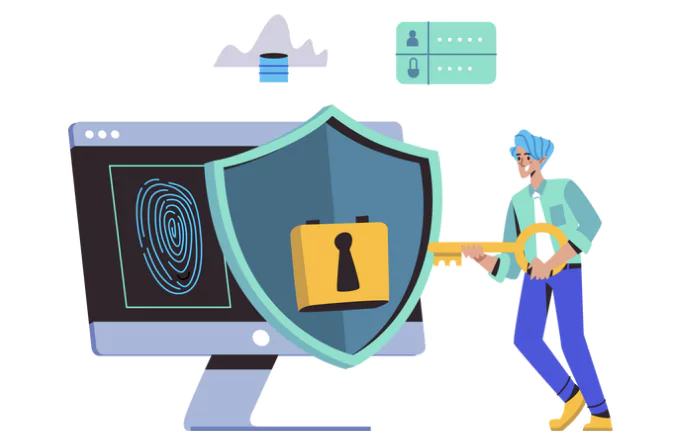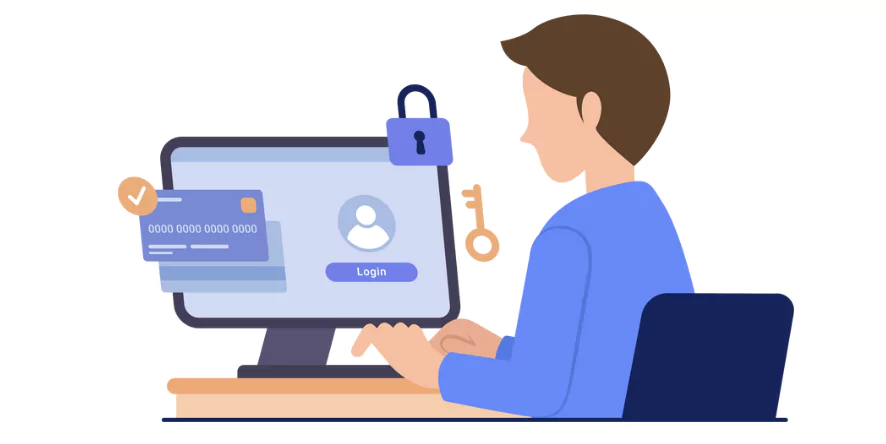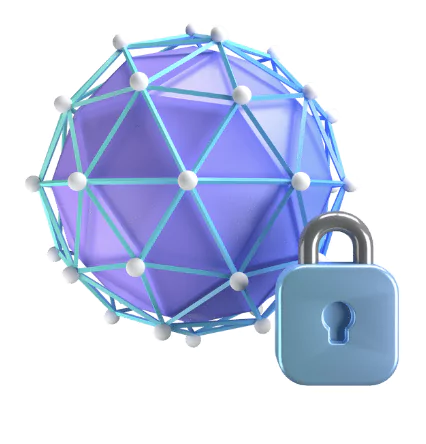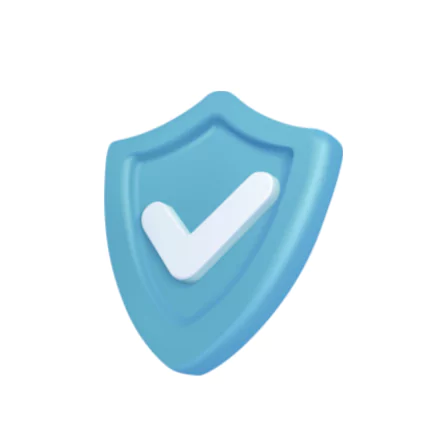With the rise in internet services and products, cybersecurity became one of the major necessities of tech savvys. Our life is dependent on these smart tech gadgets, software applications, and more. But what if someone tries to steal our information, data and use it for the wrong purpose. Well to avoid this situation and stay safe we need a complete setup or practice which can protect us from external cyber threats.
Cybersecurity is an approach of keeping our digital environment safe from network attacks and more. Everyday there are millions of cyberattacks happening in the world with individuals and companies becoming victims. We can prevent these attacks from happening and make the internet a safer place. In this blog, we will learn more about Cybersecurity and its importance in detail.
What is Cybersecurity?
Cybersecurity is the practice in the technical field where the main focus is kept on protecting sensitive information on digital devices, networks from external cyber threats such as malware, unauthorised access phishing attacks, hacking, and more.

It uses specialised tools which can easily detect harmful applications and also protects you from online scams attempts. You can keep your data safe and ensure smooth and safe online experience with good cybersecurity practices. This can be a useful practice especially when you have important data such as bank details, account statements, personal information, files, etc.
Cybersecurity: Key Takeaways
- Cyber Security is protecting your digital environment like smartphones, computers and other gadgets from online threats and hackers.
- Good Cybersecurity practices can protect your online activities from being stolen or misused.EFD
- Cybersecurity can save you from major Phishing and Distributed Denial of Service (DDoS) attacks
Read More: What is Cloud Security? A 12 Steps Complete Guide
Why Does Cybersecurity Matters?
Cybersecurity plays a very important role in ensuring online safety and making the internet a safer place for including government, individuals, organisations, corporations and more. With good cybersecurity practice implemented in your environment you can store your sensitive information and use the internet without any fear of losing information and data.

Viruses, hackers and many other unauthorised personnel has been compromising internet security for a long number of times making people lose millions. In 1972, during the initial days of the internet Creeper was created which also had an alternative which was Reaper (fixing creeper). Since then internet threats have multiplied a number of times.
Cybersecurity hence plays a very important role in keeping us safe even from AI driven cyber threats which are new in this era where automated tools, bots can steal your information and compromise your system. It is important for us to implement proven cybersecurity intelligence to keep our system safe.
Read More: Top 15+ Cyber Security Books to Read
Top Cybersecurity Principles: For Safer Online Experience

Below given are some of the most secure cybersecurity principles which forms the basis of cybersecurity practices of securing digital environment and devices.
- Users and systems should hold the least access needed to perform their tasks. It might get useful when an account is compromised as an attacker could make only limited damage possible.
- For example, a customer service agent should not have access to admin level server in an organisation
- You can use multiple layers of security controls rather than just relying on a single one for your sensitive and precious information.
- All security reliance must be completed at the beginning stage of the product development. This helps to prevent vulnerabilities and reduce any overhead fixing costs.
- All actions within the software must be traced and auditable to be able to detect breaches in the system.
- System must deny access if the user’s authorisation is not confirmed.
- Regular updates are an important practice to keep your applications in the safest mode.
All these above pointers are used to define or form the basis of a well defined and optimised cybersecurity
Types of Cybersecurity Every System Requires

Let us get a complete overview of the types of cybersecurity available based on the data and computer system you want to protect.
1. Network Security
Cyber Security protects your internet including internal networks from unauthorised access, misuse, or attacks. It includes intrusion detection system (IDS), firewalls, virtual private networks (VPNs), network access control and antivirus softwares.
With cybersecurity you can keep your internal network safe from hackers attack or unauthorised access in your system. When you are using payment gateways on unsecured networks such as public wifis in cafes, railway stations, bus stands, and more then you are at risk of losing your personal information to hackers. Also, it can expose your online activity easily. You can use a secure Private Network or VPN to prevent yourself from these threats.
Read More:Data Science Vs. Cyber Security: Scope, Salary, Difficulty
2. Application Security
Your application can also be a major source of data leaks and vulnerabilities which can expose you in the world of hackers. You need to keep your application updated, adopt safer coding practices, patches, and application level firewalls to keep your applications safe and secure.
Most of the applications we use on our smartphones are secured under the regulations applied by Google play Store. There are many applications on the internet with over 1.6 million on Google play store and 400+ on App Store. Good cybersecurity practices need to be implemented to keep all data in the application safe.
Always conduct system scan or application scan while downloading an app as some apps may pretend to be secure but can steal your personal data secretly and share it with third parties.
3. Information Data Security
Information security or protecting sensitive data information from unauthorised access, sharing, disclosure, or misuse using cybersecurity methods proper access controls, data classifications, encryption, and more. Acknowledgement about security awareness, best practices, handling personal information, and more is important.
Information data security includes adopting practices such as access controls, secure data storage, data encryption, and more. For example, encrypting sensitive customer records or business files of an organisation to keep it safe from unauthorised access.
4. Cloud Service Security
Cloud platforms are frequently used for building applications, services, and more. You can secure your data, applications, and infrastructure hosted on the cloud platform using cybersecurity data protection, and access controls.
Many cloud service providers like AWS, Google Cloud, Azure, and others ensure a high level of security against multiple online threats. With advancement in technologies these days cloud based storage and services will become very common in coming years.
5. Endpoint Security
This type of security refers to the device we are using such as computers, laptops, smartphones, IoT devices, and how much they are safe from external online threats. You can ensure endpoint security using device encryption, antivirus software, Intrusion Detection System (IDS), and more.
Firewall plays an important role in endpoint security as they monitor the complete network traffic going and coming in the system which helps in filtering malicious data packets. You must maintain a habit of keeping your software up to date for ensuring effective endpoint security.
6. Operational Security
Operational security is used to manage and protect processes that handle sensitive data and information. It includes major policies, procedures and monitoring systems. It ensures all guidelines are followed and restrictions are implemented properly.
It involves finding the risk and taking proper assessment to prevent any external attacks. Also monitoring and tracking activities plays a major role in ensuring real time security.
Major Cyber Attacks & Threats

Are you familiar with all major threats and attacks possible on your device and computer system from online sources? Let us check some of the popular cyber attacks.
1. Malware Attacks
This type of cyberattack is very common and is known as viruses, trojans, ransomware, spyware, and more. These types of attack can corrupt your system files, steal data, and provide attackers with remote access.
It can easily be triggered using email attachments, links, websites, advertisements, and more. Hence, you must be very careful before opening any unknown mail attachments, untrusted websites, or other online sources.
2. Phishing Attacks
Phishing attacks are used to steal users’ information, session tokens, financial information, and passwords using fake messages, advertisements, and more. Hackers can easily clone a website, application i,e. Make fake websites real looking, clone URLs, attachments and more to implement this attack.
3. Distributed Denial of Service (DDoS) Attacks
This type of attack is used to overflood a network using a large amount of traffic from different levels causing it to crash and making the entire service unavailable. It is used for targeted attacks on the internet and in this case attackers can easily bypass the defense mechanism of the systems.
4. Ransomware Attacks
These attacks can be considered as most lethal attacks as it locks down the access of important system files or data using encryption such as AES-RSA, ECC, RSA and more and then you will get a ransom demand for getting the data back. This practice has been more in practice since the cryptocurrency came into trend.
5. SQL & No-SQL Injection
This type of cyberattacks focus on the web applications weaknesses and insert malicious SQL code to take the access or steal information. They can easily steal login credentials, modify database records, and run admin level access commands.
With No-sql injection hackers can target firebase, mongoDB, and other important storage databases based on databases. These attacks can easily bypass authentication and gain authorised access to sensitive information on users’ systems.
Learn Cybersecurity With PW Skills
Enroll in PW Skills Certified Payment Security Professional Program from leaders at PW Skills in collaboration with Panacea Infosec. Get industry expert led training, capstone projects, and On the Job Training based on a 12 week apprenticeship program.
Get job opportunity at Panacea Infosec after the OJT completion, along with certification from PW Skills and proficiency in in-demand skills in cybersecurity, PCI DSS Compliance, Payment ecosystems, and more. Hurry! Grab this golden opportunity only on pwskills.com
Cybersecurity FAQs
Q1. What is Cybersecurity?
Ans: Cybersecurity is the practice in the technical field where the main focus is kept on protecting sensitive information on digital devices, networks from external cyber threats such as malware, unauthorised access phishing attacks, hacking, and more.
Q2. Why is Cybersecurity important?
Ans: Cybersecurity hence plays a very important role in keeping us safe even from AI driven cyber threats which are new in this era where automated tools, bots can steal your information and compromise your system.
Q3. What are some examples of popular cyber attacks?
Ans: Phishing, Malware, Distributed Denial of Service (DoS), Man in the Middle (MITM), Ransomware attacks, and more are some of the common examples of cyberattacks.
Q4. Which are the best cybersecurity tools?
Ans: Network security monitoring tools, firewalls, encryption, penetration testing, web vulnerability tools are some of the best cyber security tools.


